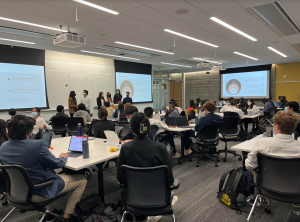
Anvitha Tummala sees many unhoused people on her walks to class, and it raises an uncomfortable thought for her: She and her peers are earning a world-class education at UC Berkeley with access to all sorts of amenities, while those living on the streets in her neighborhood constantly live without stable sources of food or shelter.
“Seeing that every day opened my eyes, and I wanted to do something about it,” she said.
Tummala found an outlet in UGBA 96-2: Berkeley Changemaker™: Big Ideas. The class, a social entrepreneurship course and the foundational curricular component of the Big Ideas Program, is offered in partnership with the Center for Social Sector Leadership at Berkeley Haas School of Business. It is an integral part of the Berkeley Changemaker™ initiative, a key campus-wide initiative designed to activate undergraduates’ passions for social change and help them develop a sharper sense of who they want to be and how to make that happen.
In the Big Ideas course, teams of students identify a social or environmental problem, develop an impactful solution that can be implemented through a business model, and ultimately pitch their startup concept to a panel of expert judges. Teams also draft applications to the Big Ideas Contest, a UC-wide innovation ecosystem, housed at Berkeley’s Blum Center for Developing Economies, that provides training, networks, recognition, and funding to interdisciplinary teams of students with transformative solutions to real-world problems. The course ran the first eight weeks of the fall semester.
Read more about Berkeley Changemaker™ Big Ideas here.



